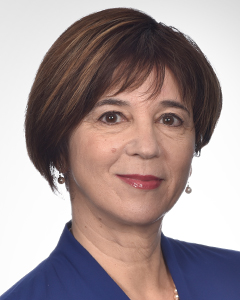Managing your medical care can be overwhelming and confusing, with multiple doctors performing different healthcare procedures. That’s why it’s important to have a primary care provider (PCP) who can connect you with specialists so you’ll receive the best care.
Difference between a PCP and Specialists
Although all medical doctors require extensive education and training, there are differences between primary care providers and specialists.
Primary care providers are doctors trained to provide comprehensive, long-term generalized care to patients. They are your starting point for general medical issues, especially when the first signs of pain or illness appear.
While they are qualified to treat a wide variety of common ailments, one of their primary roles is as liaison with any specialists you may require. Practitioners who help coordinate coverage include:
● Medical doctors (MDs) and doctors of osteopathic medicine (DOs), who specialize in internal medicine, family practice and pediatrics
● Obstetricians and gynecologists (OB/GYNs), who handle women’s health care, including prenatal
● Nurse practitioners (NPs), who often specialize in family medicine, pediatrics, adult or geriatric care
● Physician assistants (PAs), who work in collaboration with a DO or MD
Specialists are doctors who receive specific training in a particular branch of medicine. They are trained to diagnose, manage, prevent and treat certain medical conditions. A few examples of specialists include:
● Cardiologists -- heart disorders
● Dermatologists -- skin issues
● Endocrinologists -- hormonal and metabolic disorders
● Neurologists – brain and nervous system disorders
● Oncologists -- cancer specialists
● Psychologists -- mental health issues
● Rheumatologists -- joint and other musculoskeletal system problems
● Urologists -- disorders with male reproductive system and urinary tract concerns
Who Should You See First?
In most cases, you should reach out to your PCP first. If they cannot resolve the issue, they will recommend a specialist and will provide them with your health history. This added information not only helps the specialist reach a more accurate diagnosis but can bring about a quicker resolution to your concern.
Information your specialist will need from both you and your PCP includes:
● Complete medical records
● Notes from your PCP regarding steps they’ve already taken or concerns they have
● List of medications or supplements you are taking
● List of questions you have
It’s important to note that some managed medical plans (such as HMOs) require your PCP to provide a medical referral to a specialist in order for insurance to cover the cost.
While this formal written order might feel like an unnecessary step, it is designed to not only affirm that you are taking the appropriate action but to keep your primary care doctor aware of any issues that might affect other health concerns, now or in the future.
Importance of PCP-Specialist Partnership
Studies show this team approach — between you, your PCP and your specialists — is proven to not only deliver quicker and more accurate care but lessen the patient’s burden of trying to solely coordinate and manage their treatment.
This collaborative effort ensures less missed steps or unmet needs, less stress and ultimately helps you feel better faster.
Choose to Stay in Touch
Sign up to receive the latest health news and trends, wellness & prevention tips, and much more from Orlando Health.
Sign Up










